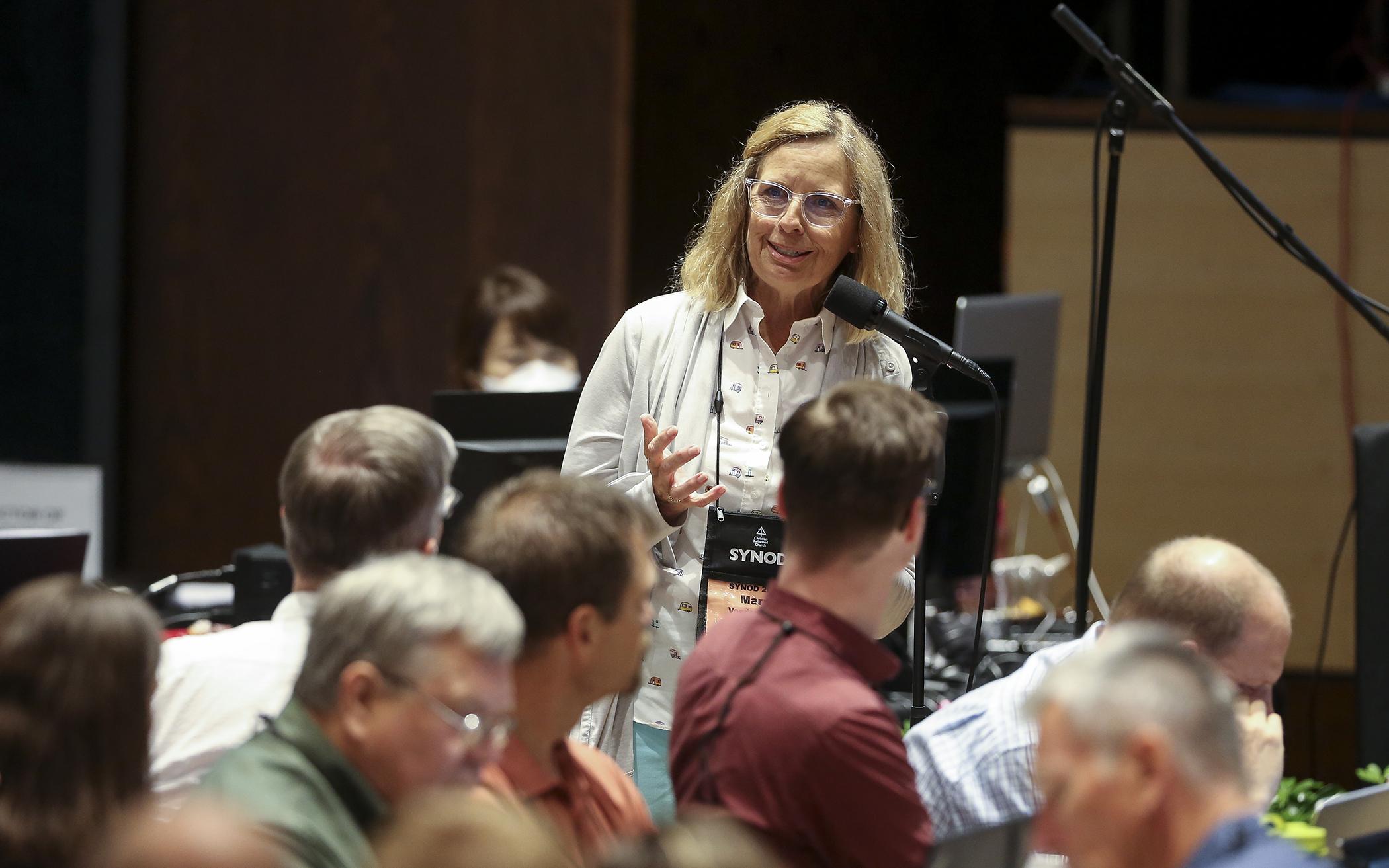Synod 2022 of the Christian Reformed Church, the general assembly, walked up to the edge of declaring the denial of the doctrine of penal substitutionary atonement as a heresy, but instead chose to call it “a serious deviation from the teachings of the confessions of the Christian Reformed Church.” For an officebearer in the Christian Reformed Church to teach or preach that denial would be subject to special discipline, including being suspended or deposed.
What is It?
Penal substitutionary atonement is the name for how Reformed Christians understand the theology of the cross. That Jesus died for us is a fundamental and perhaps universal Christian affirmation. The question isn’t whether Jesus died for us, but how to understand that central Christian teaching.
It also isn’t about whether the death of Jesus is substitutionary. To say that Jesus died for us means that the death of Jesus substituted for our own death.
The question is about the word “penal.” Penal refers to punishment. We still use the word for our prisons, calling them “penal institutions.” In penal substitutionary atonement the death of Jesus is understood as a punishment for human sin visited by the Father on the Son. It puts an emphasis on the wrath of God.
This understanding of the cross is taught in the 16th- and 17th-century Reformed confessions. The Heidelberg Catechism, one of the confessions of the Christian Reformed Church, asks in Question and Answer 10, “Does God permit (human) disobedience and rebellion to go unpunished?” The answer: “Certainly not. God is terribly angry with the sin we are born with as well as the sins we personally commit.”
Mary Vandenberg, professor of systematic theology at Calvin Theological Seminary, told delegates, “Our confessions are clear and somewhat monolithic” in teaching penal substitutionary atonement.
But she also lamented that the confessions are so monolithic with respect to this doctrine, because, she said, penal substitutionary atonement is by no means the only way to understand the cross of Jesus Christ either in Scripture or in the broad Christian tradition. She mentioned understandings of atonement prominent in Christian tradition known as the “victory of Christ” and “moral influence.” She named biblical themes like ransom, liberation, and reconciliation. And she said that all of these, not just penal substitutionary atonement, should be proclaimed in the churches.
Should Denial of Penal Substitutionary Atonement Be a Heresy?
Classis Illiana (a regional body of churches) asked synod to declare that any denial of penal substitutionary atonement is a heresy.
But a definition of heresy, adopted by this year’s synod, offered a set of nine characteristics of heresy, rather than a single definition. A given heresy might not exhibit all of the characteristics that the study listed, but a heresy will have many of them. The writers of the study also warned that the term “heresy” is to be used with caution.
So should the denial of penal substitutionary atonement be called a heresy? Synod said no. Matthew Borst, Classis Pacific Northwest, said that calling the denial of substitutionary atonement a heresy runs the risk of offending large groups of Christians who teach other ways of understanding the cross of Jesus Christ. He mentioned as an example Orthodox Christians. He said, “The church does not consider every deviation from the Reformed confessions to be a heresy.”
Acknowledging that there are other ways to understand the cross in the broader church, Borst said this particular understanding of the cross, rooted in the Reformed confessions, “is dear to us as a church.” As such, teaching or preaching that denial is “a serious deviation from the teachings of the confessions of the Christian Reformed Church.”
Why take this up now? Some delegates wondered whether taking this action was related to an isolated example, since Illiana cited the sermons of a single pastor. Leo Jonker, Classis Quinte, was not convinced it was a problem.
But others said that it was an important action to take even if there is only one person who denies the doctrine. Rob Toornstra of Classis Columbia said, “Even if it is only one person, we need to speak to it.”
Synod 2022 is meeting at Calvin University in Grand Rapids, Mich., from June 10-16. Find daily coverage from The Banner news team at thebanner.org/synod, download the Banner app on your mobile device, or follow The Banner Magazine on Facebook. On Twitter follow #crcsynod or twitter.com/crcna. Synod is the annual general assembly of the Christian Reformed Church (it did not gather in 2020 or 2021). Connect to the meeting’s livestream, read advisory committee reports, and find other resources at crcna.org/synod.
About the Author
Clayton Libolt was the long time pastor of River Terrace Church in East Lansing, Mich. Since his retirement, he has served in a variety of interim positions. He is presently serving as the interim senior pastor of Sonlight Community CRC in Lynden, Wash.









